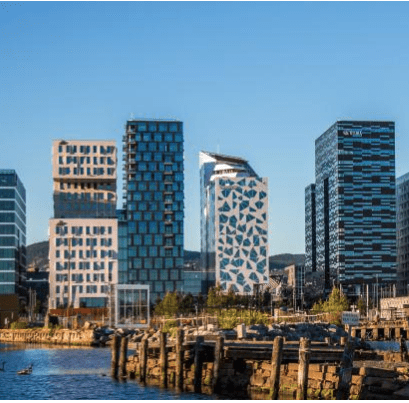
Viable Cities partners with the Sweden-US Green Transition Initiative to drive knowledge exchange between climate neutral cities in the US.
The climate transition is happening at all levels simultaneously - local, national, Nordic, European and global. Viable Cities is a Swedish program, but the mission of climate-neutral cities by 2030 will only be achieved with cooperation across all borders.
Viable Cities' international work will strengthen Sweden's role as a driver in the global transition to climate-neutral cities. The ambition is to test, develop and scale up innovative forms of multi-level governance, models and solutions to create real change through broad collaboration from the local to the international level.
Two aspects are crucial in the mission-driven approach of the program.
Through strategic collaborations and knowledge exchanges, we disseminate Swedish experiences, methods and innovations, while taking advantage of international lessons to strengthen the transition capacity of Swedish cities and Sweden's position in global climate work.
In the highly changing global context, the Internationalization Strategy 2025-2027 provides a balance between guiding principles for (re)prioritizing cities' transition efforts and flexibility.
Particular focus is on developing international knowledge networks and alliances, strengthening Sweden's strategic positioning and mobilizing funding to enable a faster transition. Central to this, in Sweden as well as internationally, is to support pioneering cities as enablers for many more, in collaboration with government agencies and other actors at several levels of governance.
As I said, all work towards climate-neutral cities is interlinked, but for the sake of clarity, we still divide our efforts: Nordic, European and global.

Viable Cities partners with the Sweden-US Green Transition Initiative to drive knowledge exchange between climate neutral cities in the US.

The Swedish work with Climate City Contract 2030 inspires the design of the EU's Climate City Contract. This is clear since Viable Cities became one of the partners in the EU initiative NetZeroCities in the fall of 2021.

NTP aims to accelerate the transition to climate neutrality by 2030 in small and medium-sized municipalities in the Nordic region. In the project, Viable Cities collaborates with Tampere in Finland, Reykjavik in Iceland, and Smart Innovation Norway in Norway.

Energy Positive Districts (PED) is an international program that contributes to the sustainable development of cities by rewarding energy efficiency, local energy production and flexibility of the energy system. The goal is to have 100 energy-positive districts in the EU by 2025.

Viable Cities is a main partner in CapaCITIES. CapaCITIES supports national and regional government agencies to advance their governance structures and develop platforms to achieve the mission of climate neutral cities.

The DUT aims to further strengthen the pursuit of sustainable cities and urban spaces. Three thematic areas are in focus in the program; Positive Energy Districts, 15 minutes cities and Circular Urban Economies.
Viable Cities' work is in close interaction with the European mobilization around "Mission Climate Neutral and Smart Cities 2030". For example, we participate in the management of the NetZeroCities platform, which supports the 112 European cities that, like the Swedish 2030 cities, have committed to being pioneers and becoming climate neutral by 2030. Seven of the 23 Viable Cities initiatives are also directly among the 112 pioneers in the EU - Gävle, Gothenburg ,Helsingborg, Lund, Malmö ,Stockholm and Umeå.
Viable Cities Climate City Contract 2030 has inspired the European Climate City Contract, which is now being implemented in European cities. We also participate in the CapaCities initiative, for the creation of national nodes in EU countries, which - like Viable Cities - will bring together cities for a joint effort for the local transition journey, and in Driving Urban Transition (DUT). At the same time, we work globally with UN Habitat and a wide range of stakeholders in the Climate Smart Cities Challenge. We also participate in several relevant networks to increase Swedish cities' competence and capacity for transition, and at the same time contribute to promoting increased exports that have an impact on the climate transition globally.